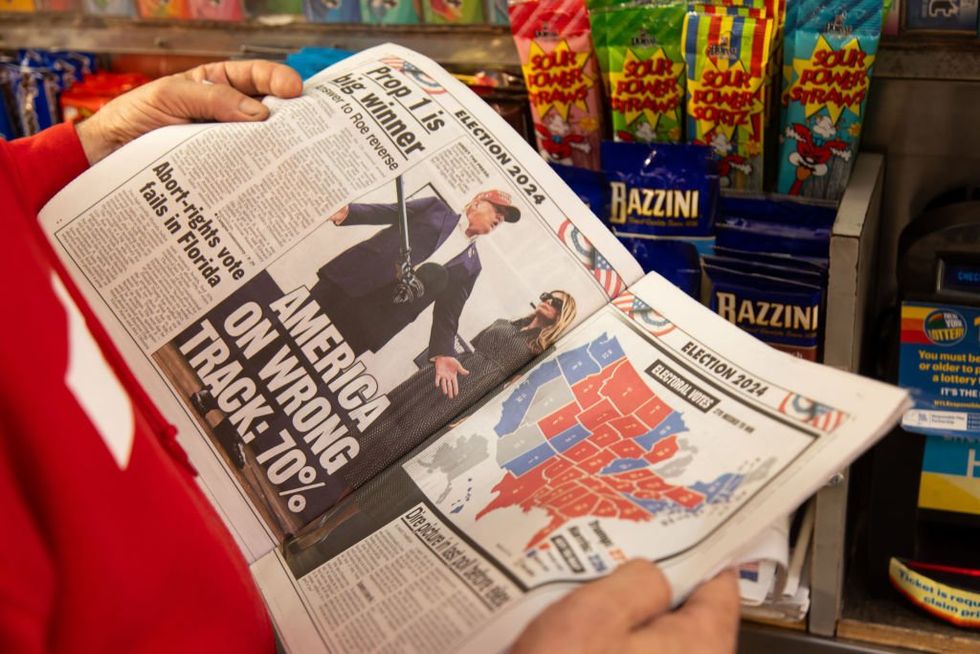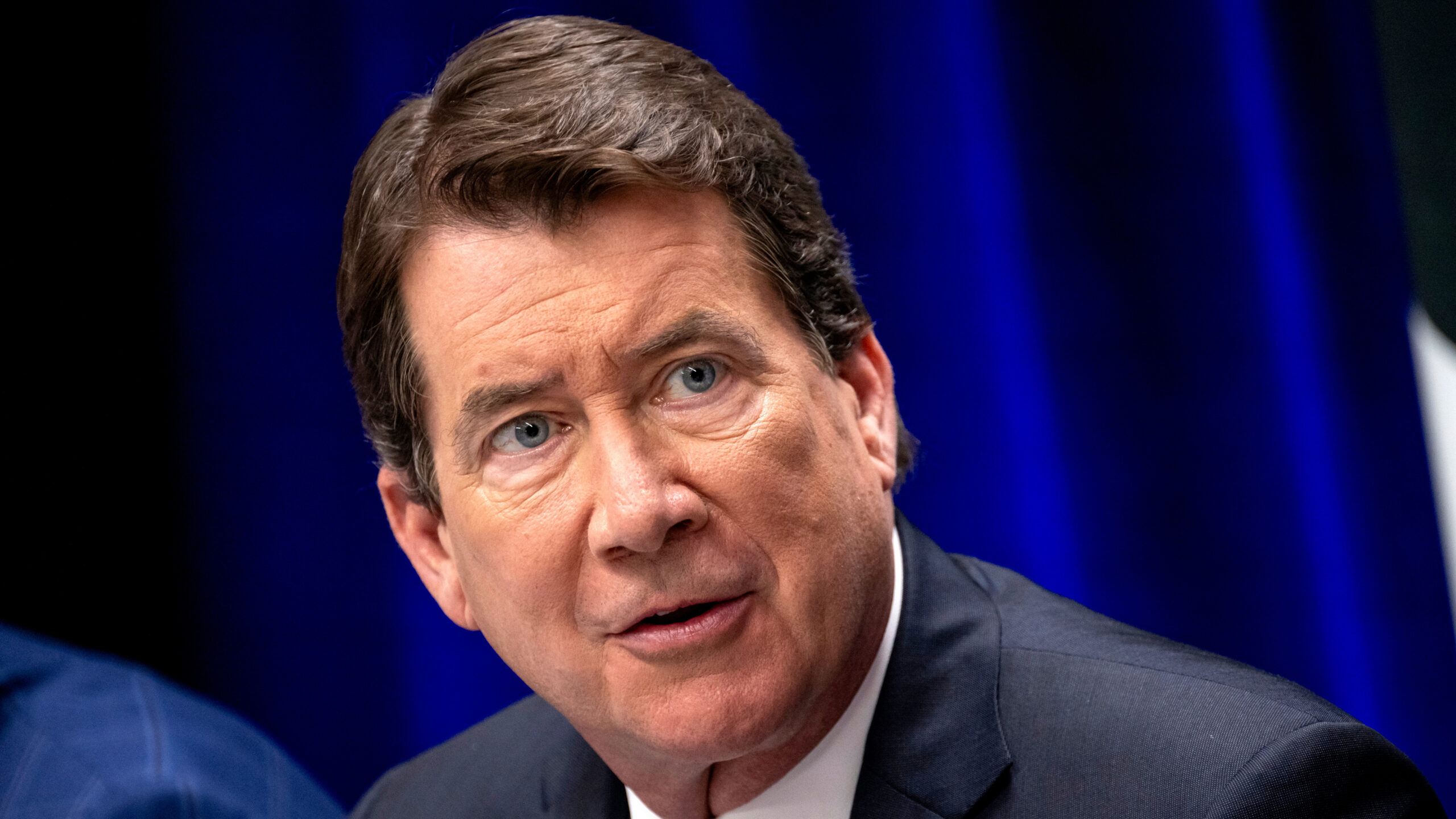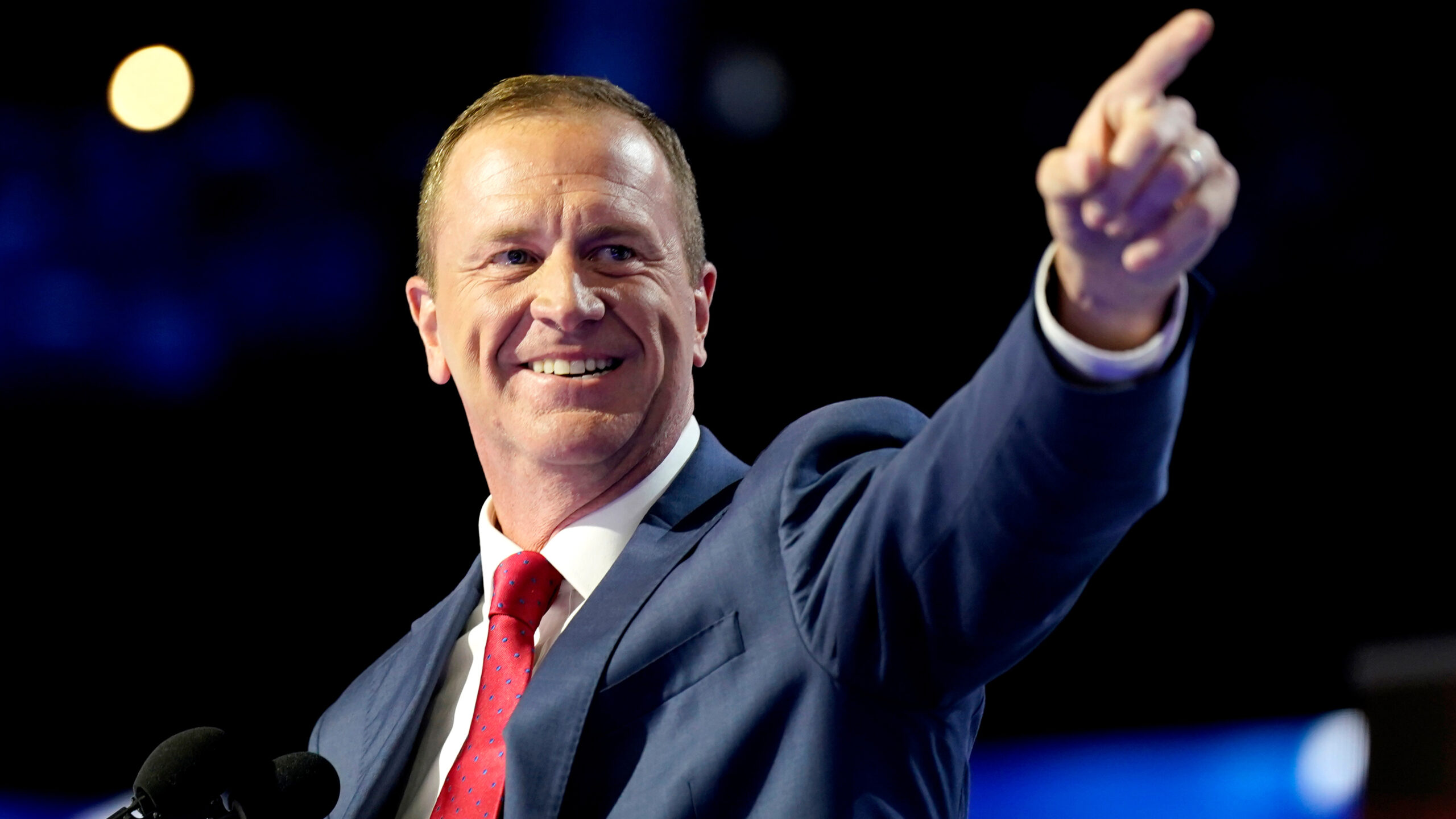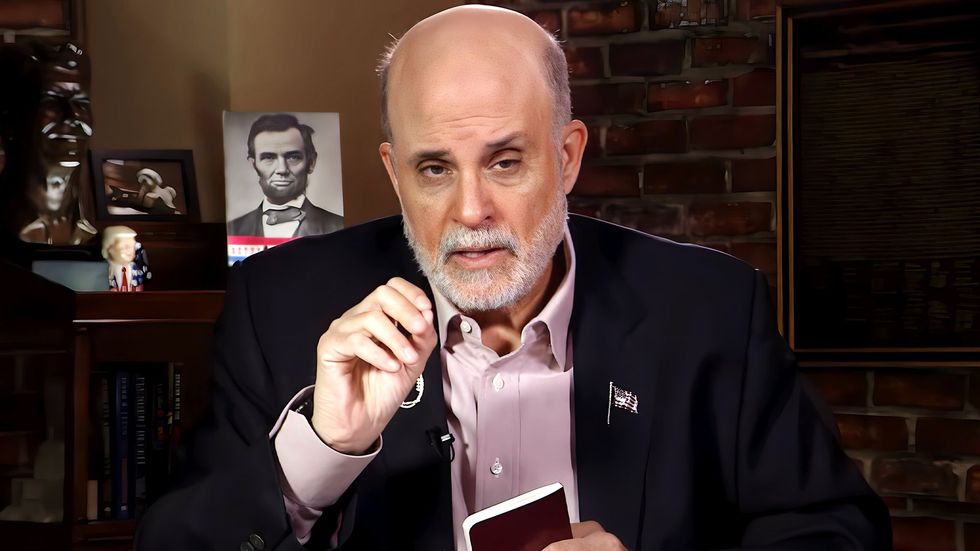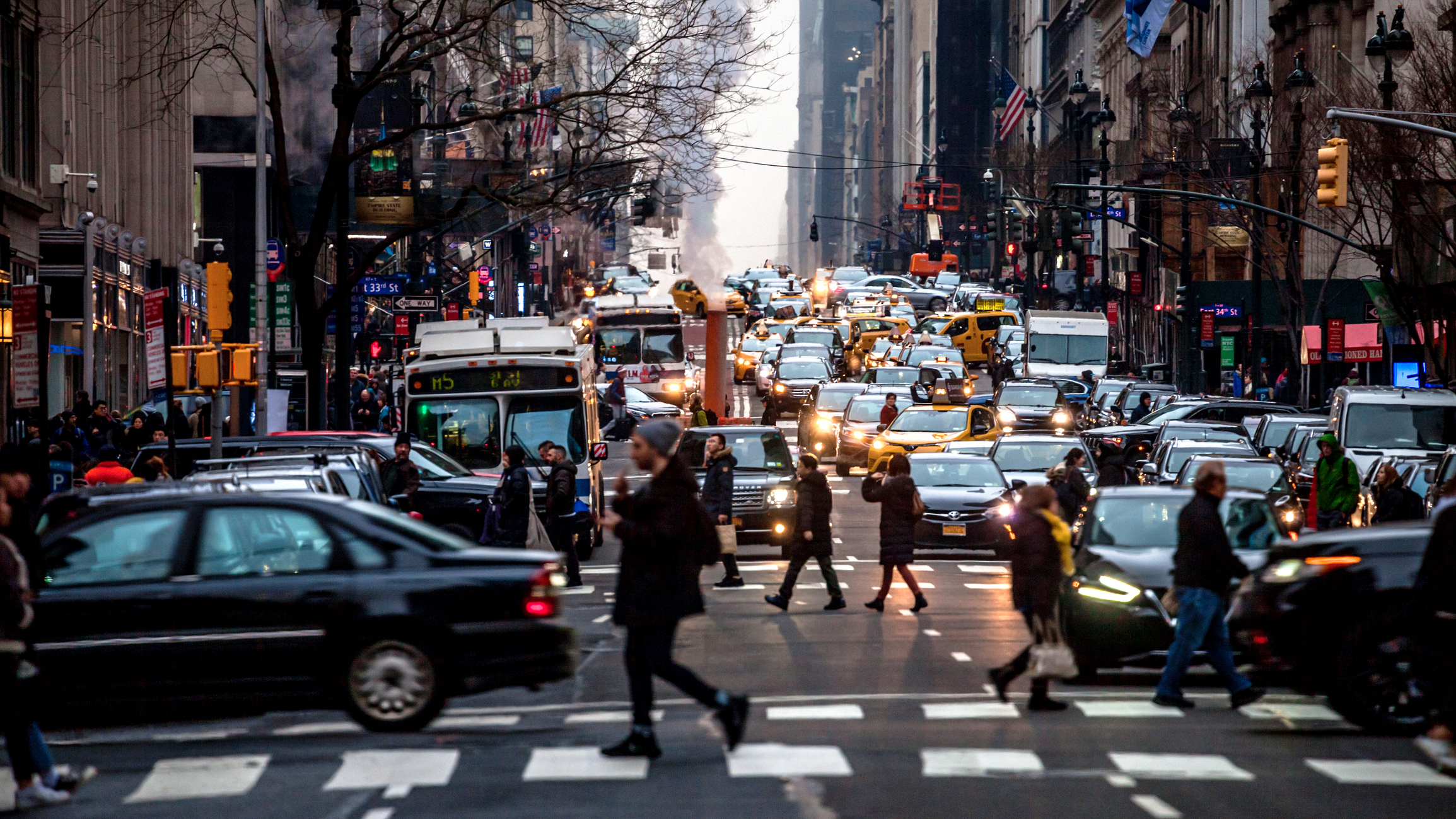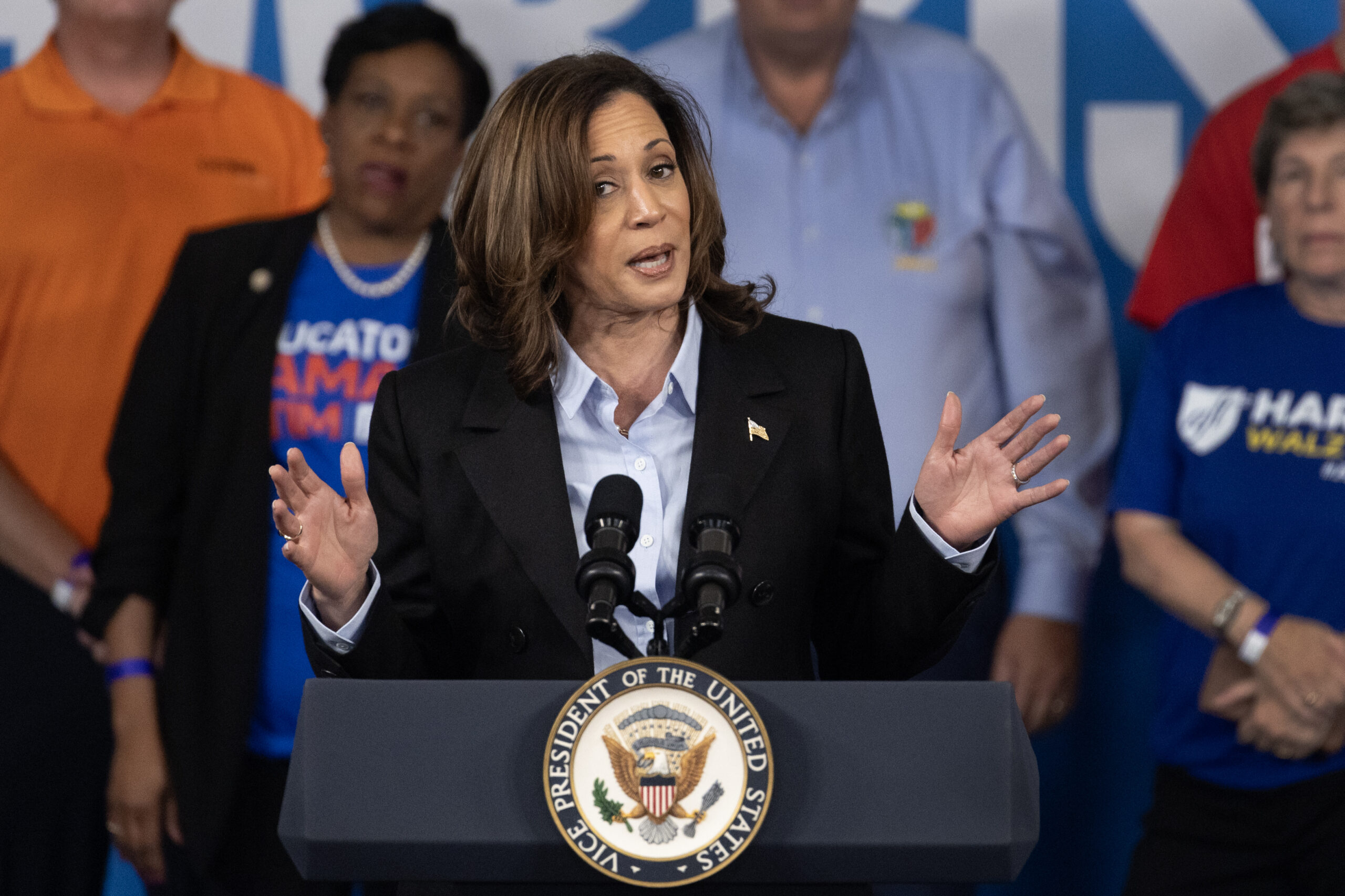When Wildfires Strike, Canada Blames Racism Instead Of Taking Action
One of the most basic assumptions about climate change that you’re told to accept is that, if you give the government enough power and make enough personal sacrifices, you can help change the weather. You can make natural disasters less likely. You can save beaches and endangered species and even entire countries. All you need ...
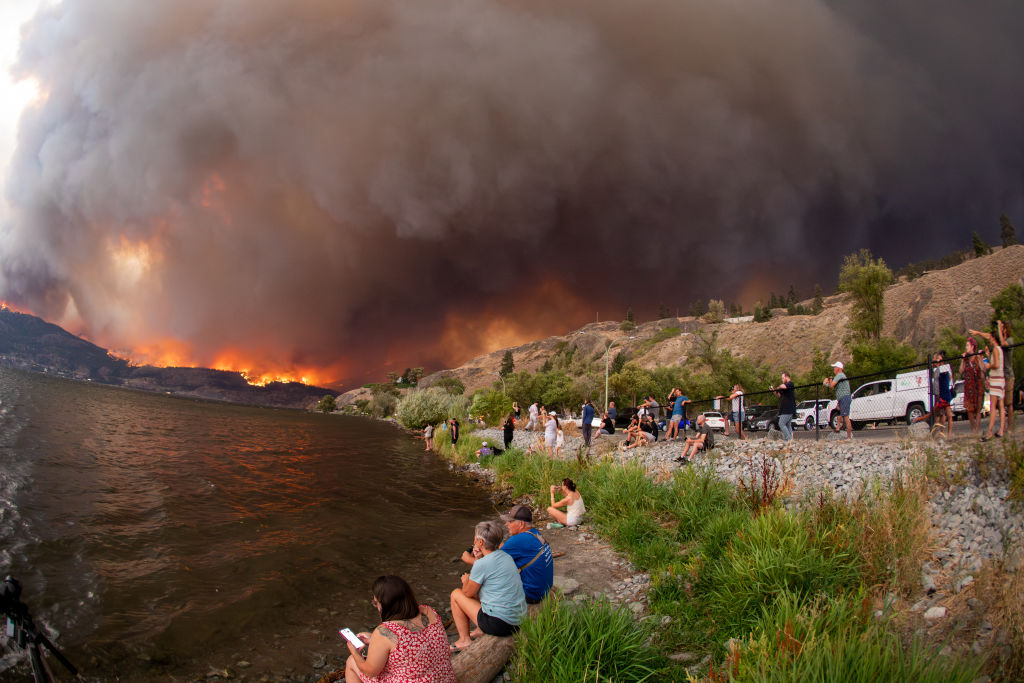
One of the most basic assumptions about climate change that you’re told to accept is that, if you give the government enough power and make enough personal sacrifices, you can help change the weather. You can make natural disasters less likely. You can save beaches and endangered species and even entire countries. All you need to do is pay more in taxes to fund more government bureaucracy, and give up your car and your gas stove and airline travel and maybe your entire livelihood. And then everything will be fine.
There’s no other country on Earth that’s internalized this way of thinking more than our neighbor to the north, Canada. They’ve declared a “national climate emergency.” They have a constantly-increasing national tax on carbon, which raises the cost of living for pretty much every household in the country. They’ve banned plastic straws. They’ve shut down oil and gas permits off their Pacific coast. If you’re an insomniac and you pull up a video of a debate in the Canadian parliament to help you sleep, there’s a good chance they’ll be debating climate change in some way or another.
So how’s all that working out for Canada? What exactly have all of these taxes and regulations accomplished, aside from hamstringing Canada’s economy for the past decade? Surely we can assume that, at the very least, Canada’s carbon emissions are much lower as a result of all of this government bureaucracy. After all, Canada’s not even a top-20 country by population. Their GDP barely ranks in the top-10. It shouldn’t be hard for them to rank relatively low on the list of global carbon emitters, especially since they’ve been trying so hard and punishing their citizens so much.
As it turns out, however, Canada is currently one of the biggest carbon emitters on the planet. They’re setting new records in the wrong direction. They’re adding more of that dreaded carbon into the atmosphere than countries three times their size. And it’s all because of a series of wildfires last year that the Canadian government clearly could not control. Watch:
All told, the 2023 wildfires contributed more than four times as much carbon into the atmosphere as everything else that Canada did last year, put together. So the plastic straw bans and the taxes and industry-crushing regulations were completely undone, four times over, by these wildfires.
If you check in with the experts, of course they’ll tell you that the wildfires were only so severe because of climate change. Supposedly the one-degree rise in reported global average temperature from 2022 to 2023 could be the reason the wildfires burned more of Canada than any other wildfire season in recorded history. Therefore, we need to redouble our efforts to ban fossil fuels and so on. That’s the line they’re going with.
As MIT Technology Review put it:
Fires are part of natural, healthy ecosystems, and burns on their own don’t necessarily represent a disaster for climate change. After a typical fire season, a forest begins to regrow, capturing carbon dioxide from the atmosphere as it does so. This continues a cycle in which carbon moves around the planet. … While climate change doesn’t directly spark any one fire, researchers have traced hot, dry conditions that worsen fires to the effects of human-caused climate change. The extreme fire conditions in eastern Canada were over twice as likely because of climate change.
The MIT Technology Review concludes with this:
It was already clear that we need to stop emissions from power plants, vehicles, and a huge range of other clearly human activities to address climate change. Last year’s wildfires should increase the urgency of that action.
What’s striking about explanations like these is that they conveniently absolve the government of all responsibility for managing the forests, which is the single most direct way to prevent wildfires from spreading out of control like they did last year. And even the Canadian government admits that. I went on the website of Canada’s National Resources Department and found that, in addition to blaming fossil fuels, they acknowledged that they could do more to prevent wildfires from spreading:
As wildfire risks will continue to intensify as the climate warms, Canada needs to … adapt fire management and mitigation strategies. There are different ways to manage wildfire risk, including controlled burns, revised forestry guidelines, and procedures to manage fuel around communities and infrastructure. It’s a balance of these techniques that can help deal with future challenges.
One scientist with the Canadian Forest Services put it this way:
A changing climate means a proactive approach must be taken. Studies like this can offer important lessons to be better prepared for the next time a devastating event like this occurs.
They don’t mention that preventing arson is another way to stop these fires, even though that’s true as well. While the majority of these fires were apparently caused by lightning or some other natural event, there was at least one guy who pleaded guilty to arson for setting more than a dozen separate fires in Canada last year. But even if you set that aside, there’s a glaringly obvious solution here, which Canada’s government acknowledges. And that solution is for the Canadian government to do a better job preventing and containing wildfires by improving their first management capabilities.
WATCH: The Matt Walsh Show
That brings me to the broader lesson from this disaster in Canada, which is that the government, in general, should focus on doing basic things competently. They shouldn’t set out to save the planet with complicated carbon cap schemes and climate emergencies, which is what Canada is doing. Preventing and containing forest fires is a very tangible and straightforward responsibility for the government. When you get the basics right, then very often you don’t need the more convoluted schemes at all.
Not that a convoluted scheme to control the weather makes any sense in the first place, because we actually have very little control over our environment. We don’t have the capacity to “fight climate change” in the way they’re suggesting. All of the climate change activism in the world can’t change the fact that forests go up in flames all over the world every year, as the MIT Technology Review admitted. And volcanoes erupt, too — like the one I talked about last year that drove temperature changes all over the world. Remember that? The eruption sent 40 trillion gallons of seawater into the stratosphere. Researchers called it an “unprecedented water vapor injection” that trapped a lot of heat — and that may have contributed significantly to global warming. No one was responsible for that eruption. It was a natural event. And sometimes those happen, and we have to accept that they happen.
Tickets for “Am I Racist?” are on sale NOW! Buy here for a theater near you.
But there are no indications that the Canadian government is going to accept that they can’t control the weather, or that they’re seriously going to revise their forest management or take any responsibility whatsoever. Instead, predictably, they’re turning the wildfires into yet another opportunity to harp on racial grievances and divide their country even more.
True North reports this week:
The Public Health Agency of Canada wants to review the way wildfire evacuations are conducted because they supposedly disproportionately impact minorities. Part of this impact is that evacuating people from First Nations communities traumatizes Indigenous people due to ‘colonialism’ and the history of residential schools. A rapid review released by the agency in July included an ‘intersectional analysis’ arguing that wildfires disproportionally impacted First Nations groups, minorities, women and non-binary people.
Yes, they’ve turned their worst wildfire season on record into an opportunity to complain once again about “non-binary people.” In the face of an actual, concrete problem — forests burning down and people dying — the Canadian government is worried about a small and highly narcissistic subset of its population with an imagined identity.
Here’s a couple of lines from the Canadian government’s report to give you some idea how unhinged the country has become:
The impact of wildfires on Indigenous Peoples is influenced by colonialism and has forced many Indigenous Peoples to live in isolation or in communities that are isolated from the rest of society. … The evacuation measures conducted in Indigenous communities served as traumatic reminders of being taken away to residential schools and/or the Sixties Scoop as some were forced onto buses and separated from family.
Not that you needed it, but this report is your admission from the Canadian government that they don’t actually care about climate change or preventing wildfires. Their only concern is to preserve and expand their power at every available opportunity. And they’ve determined that dividing people with crude racial guilt is the best way to do that.
That’s why Canada — for all its promises to save the world from carbon emissions — is now one of the single biggest carbon emitters on the planet. It’s a perfect illustration for why no one, anywhere in the world, should ever trust politicians who say they can control the weather, if only you give them a little more power and influence. They’ll happily take the power and influence; that’s a guarantee. And then, as your country is burning down around you, they won’t do anything about it. Instead, they’ll call you a racist. They’ll demand even more power to fight “climate change.” And then, before you know it, you’ll wake up one day and you’re living in a country a lot like Canada. And by that point, it’ll be too late to do anything about it. Unless you’re an indigenous nonbinary shaman, no one will care what you think.
If Canada serves any purpose whatsoever, it’s to provide cautionary tales like this. We can either pay attention and accept that there are some things we can’t control. Or we can choose to make the problems we do have much, much worse.
WATCH THE TRAILER FOR ‘AM I RACIST?’ — A MATT WALSH COMEDY ON DEI
Originally Published at Daily Wire, World Net Daily, or The Blaze
What's Your Reaction?

















